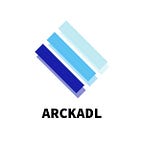What is the Cloud, and Why Do Businesses Rely on it More Than Ever?
The cloud represents online computing services which manage data and computing power for your business while allowing your team to access it from any device, anywhere, and in real time. Instead of your company’s information being stored and managed at its headquarters or branch offices with the necessary IT experts, servers, hardware, and software; you instead rely on a cloud service to automate and manage this for you. Pretty convenient right?
Managing your data on the cloud also means you access great cost efficiency with less down time, because you pay for what you use and the servers in charge of securing your data are distributed to multiple, secure data centers which are available to many companies and users. While legacy enterprises become disabled when a company-wide server goes down, businesses of tomorrow want (and need) to ensure maximum global uptime — something cloud services do very well.
So what’s the catch?
Barriers to entry for companies migrating to the cloud
Moving to the cloud is one of the most important trends in business today. Yet there are several barriers to entry that may deter businesses from fully onboarding to a cloud management system:
- Most companies, even though they have budgeted and planned for retaining cloud services, have yet to migrate their office environment from their servers and hardware to the cloud. The migration process itself is costly and often extensive troubleshooting takes place before a system is completely crossed over to the cloud.
- After having handled their own data along with data security solutions in-house, business leaders often balk at handing over their precious data (and that of their customers) to a 3rd party. They worry about security and privacy breaches.
- Compliance is another big concern — how can companies maintain their level of compliance to stay competitive when moving to the cloud?
- Businesses who are already handling their own data management must look to the expenses and labor costs of migrating to the cloud. At the same time, they are concerned about their lack of expertise in making the transition.
Modern problems that change the face of data
As our world never stops changing, the data needs of companies keep evolving. In the last few decades alone, we’ve been introduced to Artificial Intelligence, Machine Learning and the Internet of Things, as well as the massive amounts of data generated through such technological innovations.
Data management for businesses is becoming increasingly complex.
In 2020, we’ve added a pandemic as well as ongoing financial and civil unrest to the mix. We have experienced mass unemployment while millions of students and professionals are now working from their home devices.
Just recently, as schools partially opened their doors across the US, Google’s cloud service (Google Drive) experienced mass outages:
Security issues also are a widespread concern as more people than ever are working from home. IT teams are stretched to manage solutions that cover physical and virtual offices 24/7.
In the modern business environment, it is no longer a choice to move to cloud management — it is now a requirement. One that produces multiple barriers to entry for already struggling businesses.
The stages of cloud management
You already understand the basics of keeping your data stored and managed on the cloud. And maybe you’ve heard of Hybrid Clouds that enable businesses to access both private and public clouds, keeping each type of data separate and secure.
What Arckadl provides is a Blockchain-Hybrid Cloud Solution that takes cloud management to another level. It’s called the Blockchain Session Controller (BSC). To recap:
- Cloud computing means demand computing from any Internet device, without having to maintain your own servers.
- Hybrid Cloud computing combines public and private clouds to manage public and private data.
- Arckadl’s Blockchain Hybrid Cloud uses Blockchain Technology to streamline and economize the flow of public and private data on the cloud, while providing companies the choice to offer data ownership to their customers.
Arckadl’s solution is the next evolutionary step in cloud management
Arckadl goes beyond the challenges of today to ensure businesses can stay competitive. By using private and public blockchains, Arckadl ads security, cost reduction, and reduced complexity for companies migrating to cloud services.
Major service providers have already signed on to Arckadl’s Blockchain Session Controller solution to access leading edge cloud data management that removes the barriers to entry for big businesses as well as SMEs.
- Downtime is limited due to blockchain’s 24/7 availability and with multiple servers.
- The Blockchain Session Controller adds a security layer for data storage and preservation.
- The automation inherent with blockchain technology helps companies handle the remote management of data in a cost effective way.
- Blockchain public data is available to all users, so reporting, statistics and reviews are more open and accessible. Compliance becomes streamlined through automated, easy reporting on open, immutable records.
- The simple deployment of Arckadl’s blockchain solution reduces complexity, allowing users to be up and running in a matter of minutes.
- With everything automated on Arckadl’s Blockchain Session Controller (BSC), cloud usage is on a pay-as-you-go basis, eliminating wasted expense on unused network usage.
- The BSC allows companies to use both a blockchain-based private and public cloud to handle the modern needs of data management, including data from IoT devices, Machine Learning and Artificial Intelligence.
The cost effectiveness and simplicity of Arckadl’s pay-as-you-go cloud service breaks down the financial barriers to entry faced by enterprises today.
Visit Arckadl.com to learn more about our unique Hybrid-Cloud solution.
